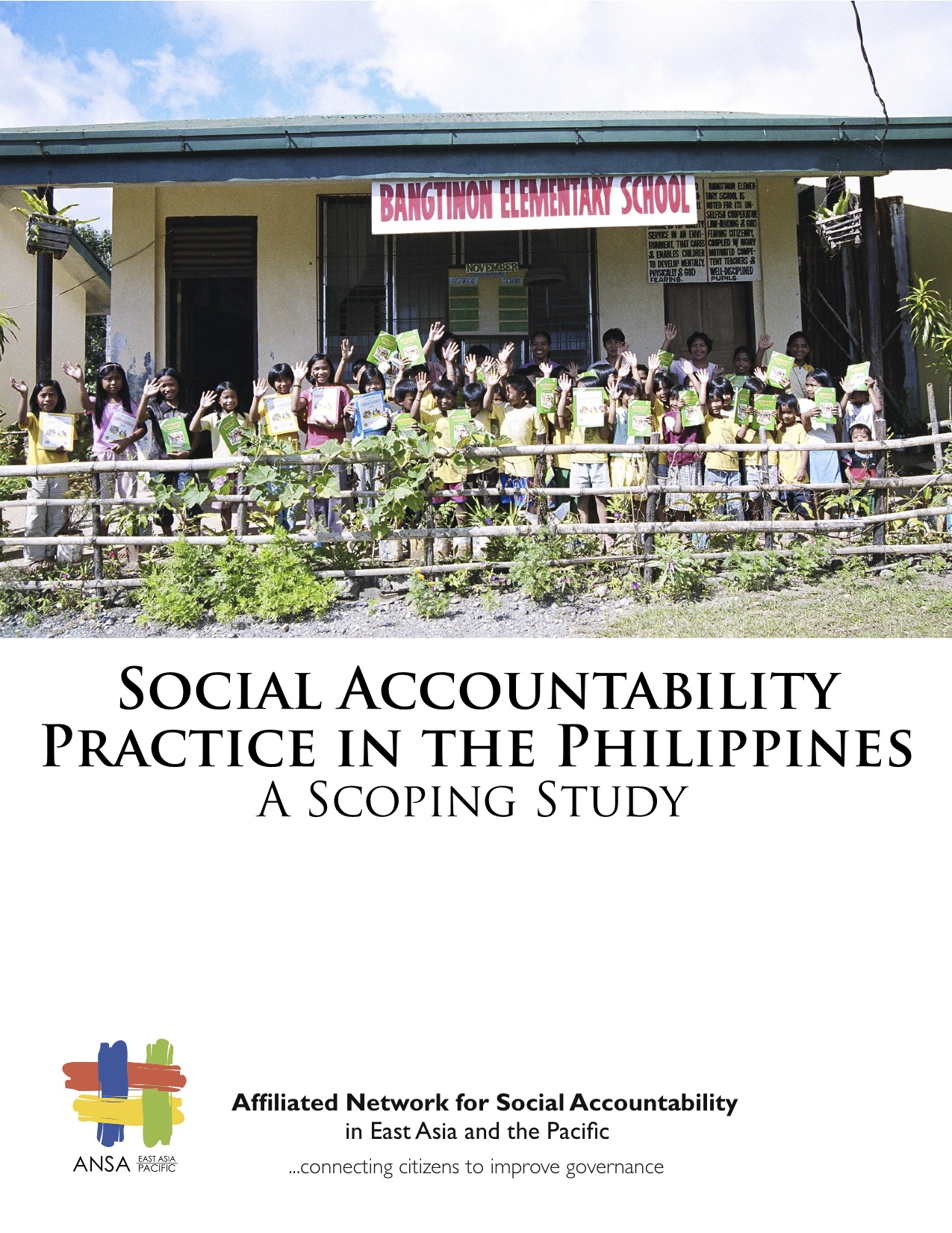 Recent years have witnessed a growing apprehension about the quality of governance and accountability of public officials for their decisions and actions. Public investments have failed to achieve significant poverty reduction. Lack of transparency, absence of rule of law and corruption continue to beleaguer developing countries, revealing the inability of existing accountability mechanisms to resolve these problems (Paul: 2005). In a survey conducted in 2005 for the World Economic Forum to measure citizen trust in government, respondents identified four deficiencies: responsiveness, accountability, transparency and effectiveness (Ramkumar and Krafchik 2008).
Recent years have witnessed a growing apprehension about the quality of governance and accountability of public officials for their decisions and actions. Public investments have failed to achieve significant poverty reduction. Lack of transparency, absence of rule of law and corruption continue to beleaguer developing countries, revealing the inability of existing accountability mechanisms to resolve these problems (Paul: 2005). In a survey conducted in 2005 for the World Economic Forum to measure citizen trust in government, respondents identified four deficiencies: responsiveness, accountability, transparency and effectiveness (Ramkumar and Krafchik 2008).
In the Philippines, democracy is handicapped by the continuing dominance of a political aristocracy whose source of wealth is derived from their control of the state apparatus and an economic oligarchy whose economic base may be independent of the state apparatus but whose access to the state is nonetheless its principal way of accumulating wealth. The result is a situation that has been caricatured over and over again in political commentaries about our condition: a small network of families and clans monopolize power and economic wealth, while the great mass of people live in poverty and misery.
A very thin layer of middle class in the pyramidal structure exists but most have gambled the little possession they have and reluctantly left their families to seek their fortune as overseas workers in unfamiliar cultures abroad. Over the years, this condition has fostered a culture of political patronage, which breeds and thrives on the insecurity and helplessness of the poor. The deeper the poverty, the greater the dependency, the more secure the hold over power. One of the persistent problems beleaguering the Philippines is this culture of corruption and patronage that permeates its political and governance institutions. The result is a weak state engaged in rent seeking activities that cause corruption and mismanagement of the Philippine political economy.
Amidst this context, several non-government organizations (NGOs) in the country have initiated various actions to assert their right to participatory governance and to make government account for its policy choices and decisions. Initially, perhaps their interventions have not been called social accountability interventions until the World Bank developed the label. This is not surprising since the Philippines is known to have one of the most vibrant, dynamic and capable civil society in the world – providing policy inputs, delivering social services, pursuing socioeconomic development and generating accountability.
As the sector substantially responsible for the transition from authoritarian rule, civil society believes that it still need to play a critical role in deepening democracy in the country amidst persistent problems of weak political institutions, unabated corruption and increasing poverty. The invaluable role of civic engagement in development is similarly argued by Reuben as he asserts that the “existence of a healthy and active civil society does not preclude the existence of a robust state, and vice versa” (Reuben: 2003).
This study builds on a number of scoping studies on social accountability mechanisms in the Philippines and in the region that have already been conducted. A more in-depth analysis will be undertaken to define from actually practice the following: (1) social accountability framework that contains a set of principles and indicators of performance; (2) environmental factors that enable civil society to play the role of informing and engaging citizens in exacting accountability from government; (3) approaches, tools and techniques used to ensure significant outcomes from SA interventions; (4) significant outcomes of SAc mechanisms in governance, sustainable development and citizen empowerment; and (5) challenges facing civil society and strategies to address these challenges.
Click here to get pdf
Erratum
1. The subtitle 4. A on on page 12, Accountability Deficit Despite People Power Constitution and Legislation follows from: Arugas, Aries A. “From Protest to Participation? Civil Society and Accountability Reform in the Philippines“, Paper presented at the 4th Asia Pacific Regional Conference of the International Society for Third Sector Research, Bangalore, India, 16-18 November 2005. (p6)
2. On page 13, the paragraph “The accountability deficit in the Philippines, therefore, refers not so much to the absence of laws and regulations and formal institutions that provides for accountability in governance but the lack of enforcement and actual application of accountability. While there is no dearth of laws and institutions, they have been reduced to mere formalities.” is also from the above paper (p6)
3. The citation for Arugay on page 15 and 31 also refers to the paper above.
